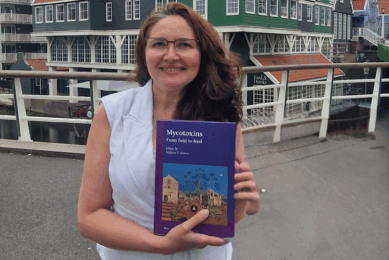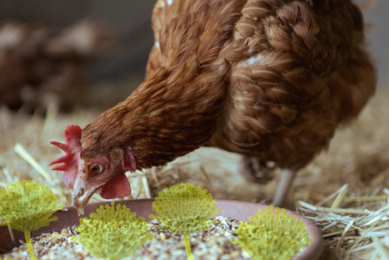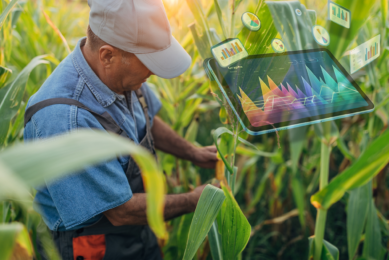Mycotoxins major focus at crop congress
Practical advice on how to deal with the hazard of mycotoxins in cereals will be a major focus at this year’s XVI International Plant Protection Congress in Glasgow, held 15 to 18 October 2007.
Based on the results of a five year project identifying the impact of
agronomy in minimising the risk of mycotoxins, speakers will set out to explain
how growers can take practical steps to reduce the formation of mycotoxins
through Good Agricultural Practice.
Legislation
Dr Simona Origgi of the Food Standards Agency (FSA),
will provide an introduction to
mycotoxins of importance in cereals and current legislation surrounding them.
She will focus on fusarium mycotoxins which can be produced on cereal crops in
the field as a result of fusarium ear blight, and ochratoxin A – produced in
cereal grain during storage.
Session organiser and speaker, Dr Simon Edwards of Harper Adams University College
says that as a result of the HGCA/FSA
2001-2005 project, the FSA has now developed a UK Code of Practice advising
growers on what agronomy they should, and shouldn’t, use to minimise the risk of
mycotoxins when growing wheat for human consumption.
“Legislation was
introduced in 2006 which set maximum limits for fusarium mycotoxins in cereals
and cereal products for human consumption,” says Dr Edwards. “As fusarium
mycotoxins are produced in the field, Good Agricultural Practice is the primary
mechanism to reduce fusarium mycotoxins entering the food chain.”
Risk
assessment
According to Dr Edwards, risk assessment for fusarium
mycotoxins can be performed at three points during the season: At the start of
the season to assess the agronomic risk; at ear emergence to assess the need for
an ear spray and at harvest to assess the overall risk (weather and agronomy).
Best practice he says would be to avoid maize as the previous crop (a major
cause of mycotoxins in milling wheat), minimise crop debris on the soil surface,
avoid susceptible varieties, consider an ear spray against fusarium and have a
timely harvest.
A third
speaker, Dr Pernilla Johnsson of Sweden’s National Food Administration
will present results from a large European project
on the prevention of ochratoxin A in cereals. Dr Johnsson will indicate how
these results can be used in a HACCP program to facilitate Good Storage Practice
for cereals.
The
XVI International Plant Protection Congress , in
association with IAPPS (International Association for the Plant Protection
Sciences) and the BCPC (British Crop Production Council) International Congress
& Exhibition, takes place from 15-18 October, 2007 in
Glasgow.
Related website:
The British Crop Production Council











